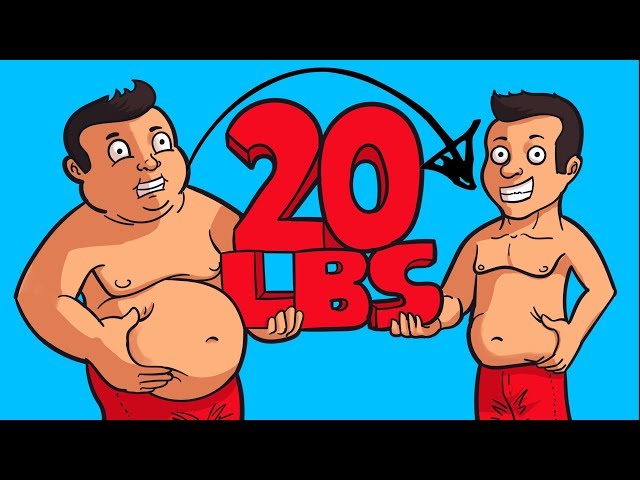
Can you really lose 20 pounds in a month? Many people have posed this question, often fueled by the desire to look their best quickly. Yet, behind the alluring promise lies a host of realities that demand careful consideration. The prospect of shedding such a significant amount of weight in just 30 days raises eyebrows and concerns regarding safety and sustainability.
When it comes to weight loss, the science is relatively straightforward: you need to create a calorie deficit. This means burning more calories than you consume. However, to lose 20 pounds in a month, one would need to maintain a daily calorie deficit so substantial that many experts consider it unrealistic and potentially harmful. Susan Pata, a seasoned personal trainer, states, "Losing 20 pounds in one month may sound like a fantastic goal, but achieving that often leads to unhealthy habits and a cycle of yo-yo dieting. The healthiest approach is to aim for 1-2 pounds per week, equating to a more manageable 4-8 pounds each month."
To illustrate the challenge, let's break it down: achieving a weight loss of 20 pounds typically involves creating a deficit of around 70,000 calories over the span of a month. That translates to an average of 2,500 calories per day. Yes, this can be theoretically feasible for someone with a very high metabolism and rigorous exercise routine, but for the general population, it often becomes a precarious balancing act.
Consider Mark, a 35-year-old man weighing 280 pounds. He might have a higher basal metabolic rate (BMR), meaning he burns more calories at rest compared to someone with a lower weight. Thus, he could strategically modify his diet and exercise to create such a deficit. But, this situation is not the norm. For most, drastic cuts in calorie intake lead to fatigue and nutritional deficiencies.
Another critical aspect to examine is the psychological impact of rapid weight loss. Jenna, a 28-year-old fitness enthusiast who successfully lost 25 pounds in a month, shared her experience: "It felt thrilling to see the number drop so quickly, but I didn’t realize how much pressure I was placing on myself to maintain that pace. I ended up feeling drained and lost my enthusiasm for working out."
Furthermore, engaging in extreme diets often leads to binge eating behaviors once the weight is lost. As Jenna candidly points out, "Restricting myself too much resulted in cravings that I eventually couldn’t ignore. It’s crucial to find balance rather than indulge in extreme deprivation." Studies have shown that such approaches often result in regaining the lost weight and sometimes even more, creating a vicious cycle of weight loss and gain. In fact, research indicates that sustainable weight management typically occurs over longer timeframes, generally between 10 to 20 weeks depending on starting weight and individual metabolism.
What are healthier strategies to consider, then? For those intent on losing weight, a gradual and sensible approach tends to yield better long-term results. Focus on a nutrient-rich diet filled with whole foods like fruits, vegetables, lean proteins, and whole grains. A hearty emphasis on hydration cannot be ignored either. Water not only aids in digestion but can also help control hunger pangs.
Implementing a well-rounded exercise routine consisting of both cardiovascular and strength training exercises is vital as well. John, a certified personal trainer, advises that "focusing on building muscle increases your metabolism. Plus, you’re less likely to feel deprived when you’re fueling your body with good nutrition and keeping active."
Intermittent fasting can also be a viable option for some. Fasting periods help regulate insulin levels and might facilitate fat burning without the stress of constant calorie counting. However, every body responds differently, and it’s crucial to find what works best for you.
Ultimately, when reflecting on the possibility of losing 20 pounds in a month, one must weigh the pros and cons carefully. While some individuals may achieve this through extreme measures, it does not equate to a healthy lifestyle. As with any goal related to health and fitness, it's essential to prioritize one's wellbeing over losing weight rapidly.
The advice remains clear: aim for gradual, sustainable weight loss, focusing on lifestyle changes that can be maintained in the long term rather than quick fixes. Remember the words of nutritionist Clara Hughes, "Weight loss isn’t just about the number on the scale; it's about creating habits that will enhance your overall quality of life. Choose health over speed."







